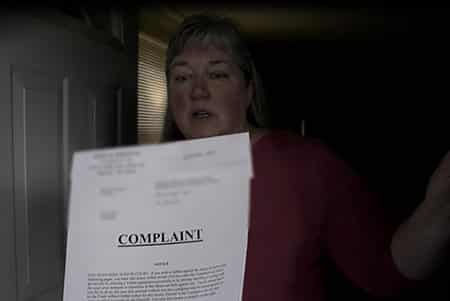Student Loan Debt

Are You Concerned about Student Loan Debt? The student loan industry has undergone major changes and reform since 2009. While private and federal student loans still exist, most borrowers currently have federal student loans through the US Department of Education. One benefit of having federal student loans is that once you graduate from college, you generally have a six month grace period before beginning your re-payment. The six month grace period is intended to give you a little time to get a job and get started on the right foot. It is also enough time to do what is called a Loan Consolidation and lump all of your student loans into a single, loan where the payments may be more manageable. Student Loan Consolidation A loan consolidation brings with it the flexibility or a range of repayment plans. Standard Repayment Plan-you pay a fixed amount over 10 years (up to 30 years for a consolidated loan) Graduated Repayment Plan-you pay a lower amount at first and your payments gradually increase over 10 years (up to 30 years for a consolidated loan) Extended Repayment Plan-your payments can be fixed or graduated with repayment time of up to 25 years. Income Based Repayment Plan (IBR)- your payments will be capped at 10-15% of your income depending on the loans you have and any remaining balance will be forgiven after 20-25 years depending on the types of loans you have. You are required to submit annual renewal documentation to determine your monthly payment for the year. Pay as you Earn Repayment Plan- your maximum monthly payments will be 10% of your income and any remaining balance will be forgiven after 20 years. You are required to submit annual renewal documentation to determine your monthly payment for the year. Revised Pay as you Earn Repayment Plan- your maximum monthly payments will be 10% of your income and any remaining balance will be forgiven after 20-25 years depending on your loans. You spouse’s loans may be considered in the calculation whether you file a joint tax return or file separately. You are required to submit annual renewal documentation to determine your monthly payment for the year. Income Contingent Repayment Plan-your monthly payment will be the lesser of 20% of discretionary income or the amount you would pay on a repayment plan with a fixed payment over 12 years, adjusted according to your income. Any remaining balance will be forgiven after 25 years. You are required to submit annual renewal documentation to determine your monthly payment for the year. Income Sensitive Repayment Plan-your monthly is based on your annual income and you pay up to 15 years and the amount you pay varies from lender to lender. Student Debt Relief If you feel overwhelmed by student debt, there is hope. First, let’s lay some ground rules. As borrower, you NEVER want to get to the point of being in default on a student loan. If you are in default, the lender has the ability to demand the full balance to be paid immediately, and that can cause massive damage to your credit score! If you are unable to meet the demand for immediate payment, the lender can seek legal recourse. They have the ability to contact your employer and garnish your wages up to 15% each paycheck until the balance is paid. They also have the ability to seize any tax return you may have received. In general, you can’t declare bankruptcy with regard to a student loan. Some exceptions do apply, but for the most part it is very difficult to have a student loan discharged through bankruptcy. Be Proactive The most important thing you can do as a student loan borrower is be proactive. Call your lender and discuss these options with them. Whether it be a federal or private student loan, the lenders generally want to work with you to ensure they receive payment. Discuss the above mentioned repayment plans with them and determine which option is best for you. Be aware that the eligibility in each program is determined by numerous facts specific to your personal portfolio. It is important to know your portfolio to determine your eligibility. Since the student loan overhaul began, the user friendliness of the student loan websites and the eligibility determination has become less of a burden on the borrower. That’s good for you, if you know how things are changing and how those changes are of benefit to you. Harold Shepley & Associates Can Help You aren’t alone. If you need help with Student Debt, contact Harold Shepley and Associates, LLC. We have experience dealing with these situations every day. We are a full service law firm that can help with debt negotiation, is client-oriented, and will work hard to meet your personal needs in resolving debt. Call us today at 877-827-9006, or complete our easy to use contact form. We’re ready to help.
Prenuptial Agreements

Prenups in Pennsylvania A Prenuptial Agreement (entered into before marriage) is a contract between two people who are anticipating marriage. It outlines either generally, or in great detail, how property is categorized and divided in case of a divorce. In Pennsylvania, marital property is defined in as, “all property acquired by either party during the marriage and the increase in value of any non-marital property” (Reference 23 Pa. C.S.A. §3501) There are statutory exceptions that exclude certain types of property from being considered in the prenup. One of these exceptions is “property excluded by valid agreement of the parties entered into before, during or after the marriage” This allows the parties to contract out of the marital property distribution in a prenup agreement. (Reference 23. Pa. C.S.A. §3501(a)(2)) A professionally crafted prenuptial agreement allows both parties to retain all of their individual property and its increase in value. Your prenuptial agreement can: Define how marital property will be divided Set terms for spousal support and/or alimony Lay out how a divorce will be filed and finalized, eliminating the need for litigation. Debt Can Be Addressed in a Prenuptial Agreement More often than not, a married couple will acquire debt during a marriage, some joint, some individual. Some married couples will acquire vast debt. Like assets, debt can also be dealt with in a prenuptial agreement. This can be especially important if one party, or the other, brings significant debt into the marriage. There are two basic areas that must be addressed for a prenuptial agreement to be deemed valid. First is full disclosure of assets and debts. If one party does not provide the other with a full and accurate picture of their financial situation, the contract can be determined to be invalid because the other party lacked this information. This means you cannot simply say, “I get to keep all my stuff no matter what it is, how much it is worth or where it is at.” The second is access to separate counsel. Both parties must have full opportunity to seek advice of separate attorneys prior to signing the prenuptial agreement. This means you cannot give a prenuptial agreement to the other party the morning of the wedding and ask them to sign it and expect it to be considered a valid contract. Prenuptial agreements, traditionally, were considered as only for extremely wealthy people or celebrities.With the increase in the divorce rate in the United States, prenups are now an effective tool for everyone to protect property rights. There is also the perception that the party who requests a prenuptial agreement is expecting the marriage to end in divorce. A prenuptial agreement should be considered as nothing more than an insurance policy to protect both parties and the assets and income that they have worked hard to create. Harold Shepley & Associates Can Help At Harold Shepley and Associates, LLC, we have experience dealing with situations of both debt and bankruptcy and divorce. We are a full-service law firm that is client-oriented and will work hard to meet your personal needs in resolving debt. Call us today at 877-827-9006, or complete our easy to use contact form. We’re ready to help.
Served With a Lawsuit?

Being Sued – What Should You Do? When the sheriff shows up at your home to serve you with a civil lawsuit, it can be an extremely stressful event. Don’t worry, in cases of a civil lawsuit or other debt related issues, our full service debt relief law firm is ready to stand by your side. Unlike other debt relief companies, we offer the complete services of an experienced legal practice and we can assist you if you receive a lawsuit in connection with your debt. We negotiate and get the best settlement possible for you on your accounts, and we have the ability to put forth any and all defenses you may have in relation to the claim. We will ensure your creditors provide the information they are required to by law and at the same time buy you time to build funds for a settlement. We have been successful getting cases dismissed which result in no liability on you. Contact us immediately upon receiving a lawsuit as there are time sensitive deadlines we need to meet to protect your interests. Call 877-827-9006 today. We’re ready to help. Why did I Receive a Lawsuit on this Account? We have been working on behalf of people just like you for many years. Over all that time we have not been able to pinpoint an exact reason why the creditor decided to file suit. Every creditor has different policies on when and if they sue and those policies seem to change from year to year. There is absolutely no way to predict or explain why your particular creditor has proceeded in the fashion that it has, but rest assured you are in good hands with Harold Shepley and Associates, LLC. The creditors have thousands of people working for them across the country, you deserve to have us working for you! More information about debt relief is available on our Debt Negotiation page. I Received a Lawsuit. Why Should I Defend it? The decision to defend or not defend is up to you, but without question the best choice is to defend your lawsuit. At Harold Shepley and Associates LLC, our Litigation Department has the experience you need to navigate your lawsuit through the Court System and obtain the best result. We understand the importance of your situation and we keep the cost at a minimum while obtaining the best possible outcome. If you choose to defend we will work to prevent a legal judgment from being entered against you. If you choose to not defend, your account will go to a legal judgment unless a response is formally entered with the Court or you appear for your hearing (depending on which Court your suit was filed in). If your lawsuit goes to a judgment, the creditors have enhanced rights on your account and have the right to move forward on that judgment. That is why you should contact Harold Shepley and Associates, LLC and defend any and all lawsuits you may receive. here is no reason the stress of a lawsuit should ruin your life. Talk to our debt relief specialists, the consultation is free. Call us today at 877-827-9006 or use our easy-to-complete contact form. Our attorneys will be delighted to speak with you. What Can a Creditor Do With a Legal Judgment? As stated above, a creditor has enhanced rights on your account once a judgment is obtained. A creditor, using the Court System, can execute on any judgment they have against you. Typically an execution will result in the creditor finding and placing a “freeze” on your bank account. During this time you may not be able to access your bank account and some of your funds may be garnished. In addition, any judgment against you will result in a judgment lien against any property you own which will place even more power with the creditor. At Harold Shepley and Associates, LLC, we understand the needs of our clients and we work to prevent judgments from being entered against you. This is why we highly recommend you defend any and all lawsuits you may receive. If you currently have a judgment, it is not too late. Contact us and we will provide a comprehensive outlook on your individual situation and help you deal with any debt related issues you may have. Why Choose Harold Shepley and Associates, LLC? At Harold Shepley and Associates, LLC, we have over eleven years of experience dealing with the issues you are currently facing. We are a full service debt relief Law Firm that is client-oriented and will work hard to meet your personal needs in this situation. Yes, there are other companies out there to help, but we truly believe that there is no other Law Firm that so completely meets the needs of people overwhelmed by debt as we do. Not only will we work towards settling your accounts and saving you money, we will serve your legal needs as it relates to any lawsuit you receive or in any other way in which we can provide the best help possible to you. Call us today at 877-827-9006, or complete our easy to use contact form. We’re ready to help.
Do I Need a Will?

Yes, a Legal Will is Essential for Your Estate For many people, the thought of a Will brings with it unpleasant thoughts of death. Many people think, “I’m in good health, why do I need to think about having a Will?” Certainly, wills are very easy to put on the back-burner for another day. Unfortunately, death can stalk even the healthiest and youngest of us, and preparing a Will allows you to control what happens to the property you’ve acquired over your lifetime – no matter how much, or how little, you may own. Even a young person at the beginning of their career, without a spouse or direct dependents, may still have prized possessions, a beloved pet, a favorite collection, and other meaningful memorabilia that they would want to leave to friends and family. A valid Will is critical for those of us who own homes, have significant property and savings, and for whom the welfare of our spouse and children are important. Talking to an attorney about a Will is a good idea for anyone. To learn more about why a valid Will is important for you personally, call us at 877-827-9006. What is a Will? A Will, in its simplest form, tells your survivors what you wish to do with your property after you die. You should never assume that, “My wife will know what to do with my property” or “My kids can split my property – they get along well and won’t fight over my stuff.” At Harold Shepley & Associates, we have heard these statements from clients in the past and, unfortunately, have been there when they proved not to be true. Beyond having a Will to make sure your property is disposed of as you wish, it can also prevent fights between family members and make things much easier on your survivors. A Will names an Executor to act as the manager of your estate and to dispose of your property. Without a Will just about anyone can petition a court to be named as an Executor. If you have a Will, you name the person whom you trust to manage your estate. What if I Don’t Have a Will? If you die and do not have a Will, your property can be distributed by Pennsylvania Intestacy Laws, 20 Pa. C.S.A. §2101 – §2110. This means that the Commonwealth of Pennsylvania will decide who receives your property, not you. For example some people may have children who they don’t have a relationship with and may not wish them to receive property when they pass, or may want them to receive less than their other children. Without a Will all children would share equally in the estate. Having a Will also makes it easier on your survivors. After going through the trauma of someone’s death, many people don’t know what to do with the property of the deceased. A Will is their guide on what the deceased’s wishes were for their property. Your Will and Your Estate Proper estate planning can also help avoid paying unnecessary taxes; can provide care for minor children; can provide care for pets; decide who will act as your Executor to enact your final wishes and fund charitable causes etc. No matter how much property you have, having a Will can help you enact your last wishes regarding the disposition of your property and help your survivors dispose of your property as you wished. Although Pennsylvania recognizes Holographic Wills (those prepared and signed by the deceased), the most common Will today, and easiest to administer, is the Self Proving Will. A Self Proving Will has two (2) witnesses who have signed affidavits in front of a Notary. This requires no further affidavits or witness testimony to be submitted for administration. “An ounce of prevention is worth a pound of cure!” Why Choose Harold Shepley and Associates, LLC? At Harold Shepley and Associates, LLC, we have over eleven years of experience dealing with the issues you are currently facing. We are a full service Law Firm that is client-oriented and will work hard to meet your personal needs in this situation. Call us today at 877-827-9006, or complete our easy to use contact form. We’re ready to help.
What is a Judgment?

Has a Civil Action been Taken against You? Judgments are the result of a civil action filed in a court. They are usually for the collection of money owed by one party to another. Civil actions can start only within certain time limits. For example: The time limitation for a written or contract is four years. A contract for the sale of goods is four years. Injury to personal property is two years. Any other action not otherwise limited is six years. Unless specifically agreed upon by both parties, the legal interest rate on a judgment is 6% per year. Money Judgment A money judgment may be enforced against your personal property within 20 years after the entry of the judgment. In these cases you are known as the “judgment debtor” and your creditors are referred to as “judgment creditors.” A money judgment may also become a lien on your real property in any county, after the entry into the record of the prothonotary’s office in the county where the property is located. Such a lien is enforceable for a period of five years which may be revived before the expiration of the five year period. Generally, all of your “non-exempt” tangible or intangible personal property and real property is subject to a judgment by way of a writ of execution. You may claim an exemption of certain personal property from attachment or execution from the payment of debts, but these exemptions are quite limited. Through a writ of execution, your creditors can ask the county sheriff to attach any personal or real property belonging to the creditor. The writ directs the sheriff to put a levy on your property and sell it at public auction to pay for the judgment amount (if the amount is not paid before the auction.) Certain property, such as wages, child support, welfare benefits and Social Security payments cannot be taken. Talking to an attorney about a judgment is critical to preserving your wealth and your rights. Call us at 877-827-9006. Judgments Taken by Default Many judgments are taken by a creditor through default. This means that you failed to respond to the complaint after service or failed to appear at a prescheduled court hearing, even if there are good reasons that the judgment should not be granted (i.e., validity of the debt, improper service, unfair debt collection, etc.). Other judgments can be entered in Pennsylvania by transfer of a judgment from another state. Even judgments by confession can be entered in a commercial non-consumer situation. Regardless of what type of judgment is taken against you, any judgment can be stressful. Often creditors will first attempt to seize your bank account before any other asset. If the judgment debtor has already transacted business with the creditor through a check payment, the creditor automatically knows where the debtor’s bank account is and even knows the bank account number. Once seized, any outstanding checks not paid will be dishonored by the bank resulting in overdraft fees and any future automated money credits to the account will also be seized. What to Do when You are Sued The best approach toward being sued is being proactive. Direct contact with the creditor should be made as soon as you are served a complaint and before judgment is entered. The right attorney who is knowledgeable in debt collection and skilled at negotiation is your best bet. Why Choose Harold Shepley and Associates, LLC? At Harold Shepley and Associates, LLC, we have the experience you need to deal with civil actions, law suits, and judgments over money owed. We are a full service Law Firm that is client-oriented and will work hard to meet your personal needs in this situation. Call us today at 877-827-9006, or complete our easy to use contact form. We’re ready to help.
Dealing with a Divorce and Marital Debt

Dealing with a Divorce and Marital Debt at the Same Time Filing for bankruptcy and dealing with a divorce are both traumatic life events. Few people imagine they might have to deal with both at the same time. In reality, these two areas of life and law often go hand-in-hand. It is not unusual for the emotional and financial stresses of one situation bring the other into the picture. Consider: Costs of a Divorce. The financial impact of a divorce, including decreased household income and marital debt, can easily create a situation where you must consider filing for bankruptcy protection. The Stress of Debt. In the opposite situation, the stress of unmanageable debt, lost income, and unemployment – all scenarios that lead to bankruptcy – often contribute to the break-up of a marriage. t Harold Shepley & Associates, LLC, we’re ready to help you out of the darkness of some of life’s most troubled situations. Call us today at 877-827-9006 or visit our Contact page. There is light at the end of this process and our concerned and accomplished attorneys can help you find it. How Divorce and Bankruptcy affect One Another When contemplating both divorce and bankruptcy, it is important to know how one affects the other. Filing a Joint Bankruptcy Petition First, only people that are legally married may file a joint bankruptcy petition under 11 U.S.C. §302(a). If a divorce has been filed, but a Decree in Divorce is not issued prior to the filing of the bankruptcy case, then a married couple may still file a joint bankruptcy petition. This can be beneficial in regards to the costs of filing. Separate filings call for separate attorney’s fees, separate filing fees and separate Consumer Credit Counseling fees, because two cases are indeed being filed. By filing a joint petition a couple that is still married can save money that may be desperately needed for other obligations. Assigning Marital Debt Second, while dividing assets in a divorce is traditionally the primary focus area for attorneys in a divorce, marital debt must also be assigned. By filing bankruptcy prior to finalizing a divorce, the parties can eliminate significant marital debt and then focus on splitting assets instead of debt. Protecting Property in a Divorce and Bankruptcy Third, when a divorce is filed it may automatically change the nature of property and a debtor’s ability to protect certain property. The most common example is a retirement plan. Under Federal Bankruptcy Exemptions, retirement plans through an employer of almost all kinds are exempt in whole as per 11 U.S.C. §522(d)(12). However, when you file for divorce the non-participating spouse in a retirement plan cannot take advantage of 11 U.S.C. §522(d)(12) to protect their marital share of the retirement plan. They must instead use 11 U.S.C. §522(d)(5), which offers very limited protection. Attorneys Handling Both Bankruptcy and Divorce Obviously, these are but a few of the considerations that can come into play when divorce and bankruptcy go hand-in-hand. Don’t face these traumatic situations alone. It is important to contact experienced and knowledgeable counsel to guide you through all the potential pitfalls and put together a plan of action that best serves your needs. And if you are working with a bankruptcy attorney and a divorce lawyer, make certain that both are aware of one another. This will allow them to communicate with each other to further your interests. There is nothing worse for a divorce attorney than to be “surprised” with information that you have filed for bankruptcy protection…except for your bankruptcy attorney to find out that you have filed for divorce! When you work with the accomplished legal team at Harold Shepley & Associates, LLC, you’ll find that we can handle both sides of the equation for you with grace and empathy. Our genuine desire is to help turn your life around and put you back on a solid foundation. The consultation is free; the time for waiting and searching for answers is over. Call us today at 877-827-9006 or use our easy-to-complete contact form. Our attorneys will be delighted to speak with you.

